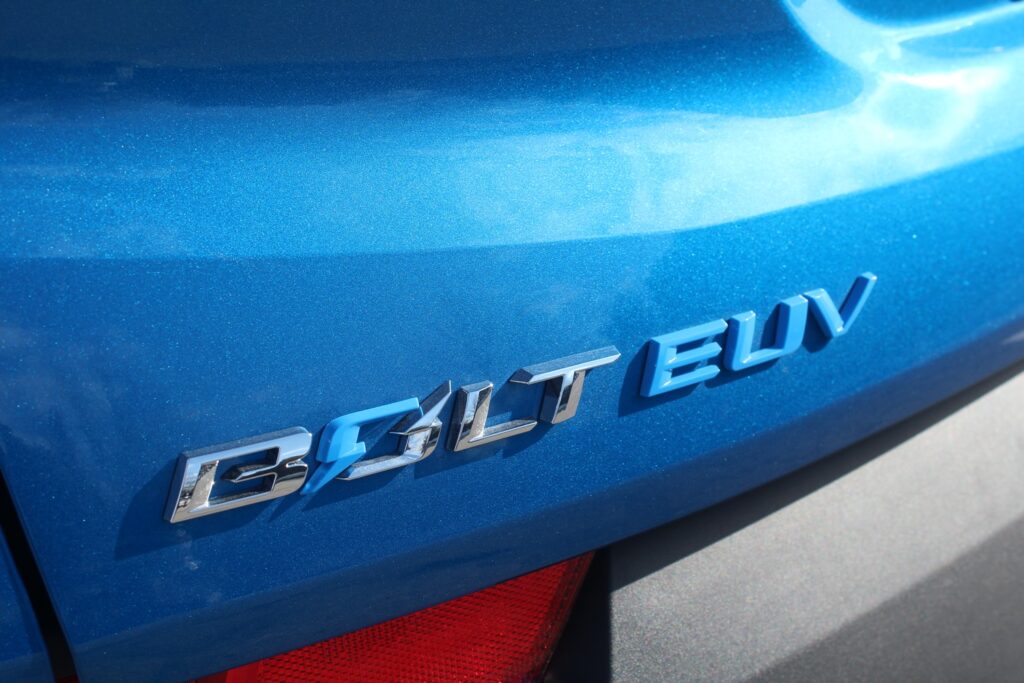General Motors announced Friday that it is voluntarily expanding an existing recall for the Chevy Bolt EV to include the remaining 2019-model-year vehicles, as well as all 2020- through 2022-model-year vehicles. The recall also includes the recently released Chevy Bolt EUV.
“In rare circumstances, the batteries supplied to GM for these vehicles may have two manufacturing defects – a torn anode tab and folded separator – present in the same battery cell, which increases the risk of fire,” General Motors said.
Going forward, GM will replace the defective battery modules in the Chevy Bolt EV and Chevy Bolt EUV, GM said. The recall is expected to cost upwards of $1 billion, it says.
“The expanded recall follows a GM investigation into the manufacturing processes at GM’s battery cell supplier, LG Chem. The investigation uncovered manufacturing defects in certain battery cells produced at LG’s facilities “beyond the Ochang, Korea, plant.” General Motors says it is “pursuing commitments from LG for reimbursement of this action.”
According to GM, the new recall includes more than 73,000 units of the Chevy Bolt EV and Chevy Bolt EUV sold in the U.S. and Canada, including 9,335 units (6,989 units in the U.S., 1,212 units in Canada) of the 2019 Chevy Bolt EV not included in the previous recall, and 63,683 units (54,403 units in the U.S. and 9,019 units in Canada) of 2020 through 2022 Chevy Bolt EV and Chevy Bolt EUV.
Also Read | GM issues new recall, affecting 50,932 Chevrolet Bolt vehicles after vehicles catch fire

Battery packs equipped with the new modules will be covered by an 8-year/100,000-mile limited warranty in the U.S., and 8-year/160,000-km limited warranty in Canada, GM said.
GM said battery defects could lead to fires in the subcompact vehicles and urged drivers to limit their charging, avoid overnight charging and park them outside.
GM advised its customers to set their Chevy Bolt EV or Chevy Bolt EUV to a 90-percent charge limitation using the Target Charge Level mode. Customers are also advised to charge their vehicle more frequently and to avoid battery depletion below 70 miles of the remaining range, while also parking the vehicle outside immediately after charging.
Customers “should not leave their vehicles charging indoors overnight,” GM said in a statement.
A global media for the latest news, entertainment, music fashion, and more.


